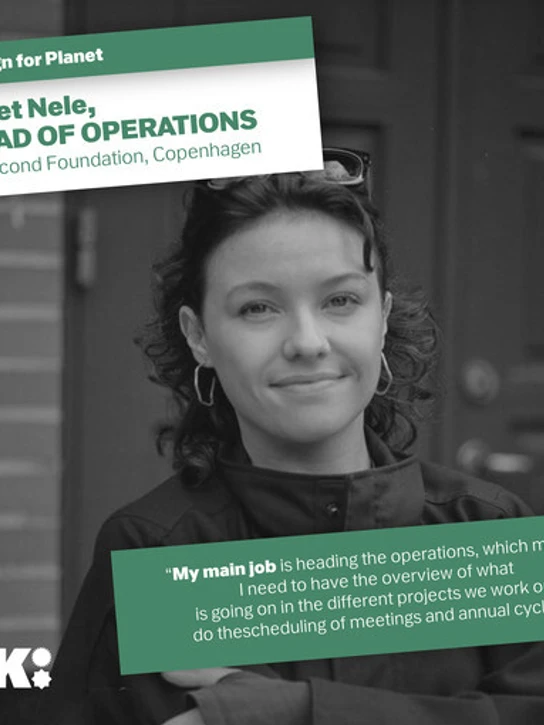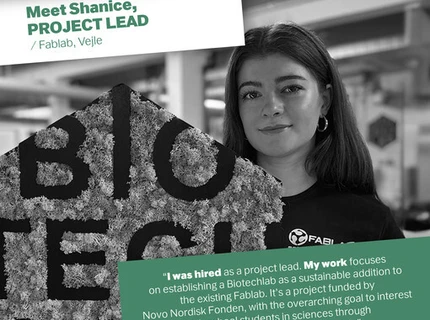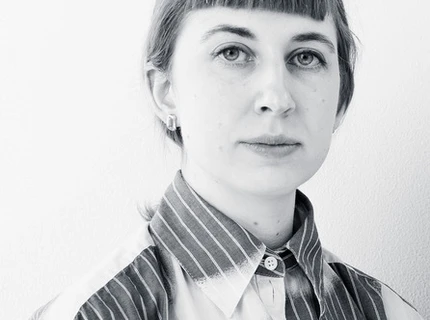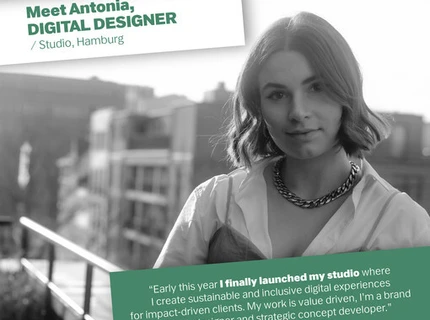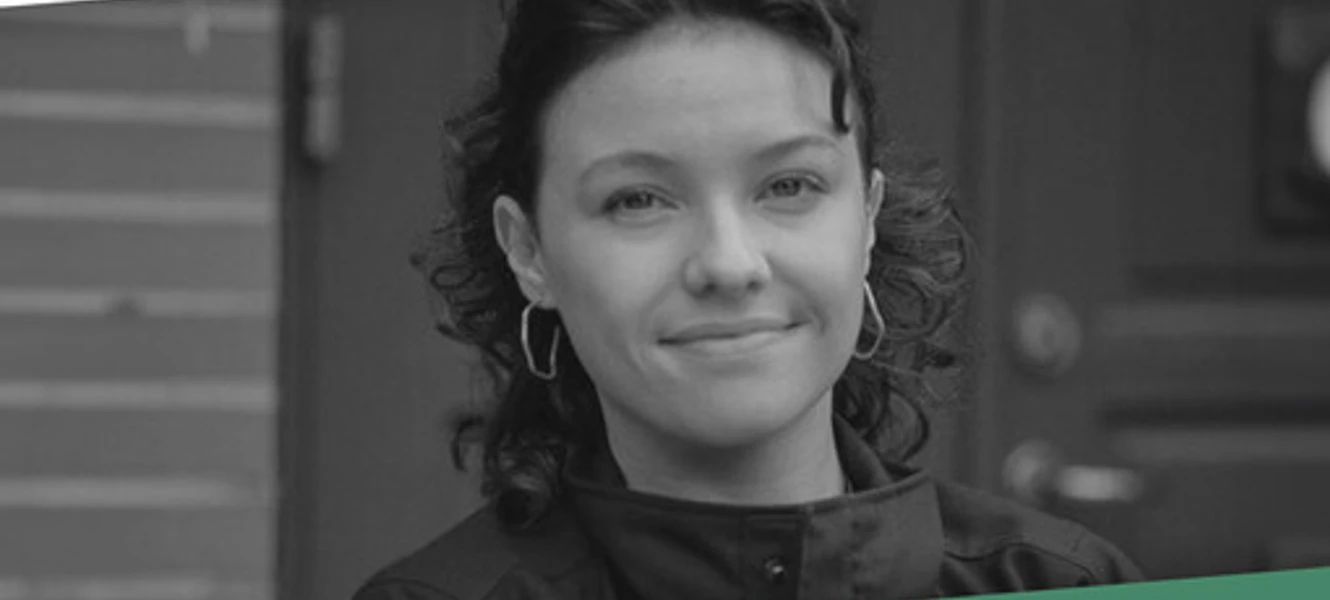
Meet Design for Planet alumnus Nele Kieseritzky
Tell us a bit about yourself!
I'm Nele, and I I'm from Northern Germany. I studied Industrial Design in Kiel, Germany, then moved to Kolding to begin the Design for Planet MA programme at Kolding School of Design. Last year, I moved to Copenhagen, where I still live and work.
Where do you work? What is your role and what are your tasks?
I've worked as an operations manager at Second Foundation since the summer of 2022. Last May, I stepped up as the interim Head of Operations. Our main project is operating the startup incubator Innofounder. My tasks are diverse since we are just a team of 9 colleagues. My main job is heading the operations, which means I need to have the overview of what is going on in the different projects we work on, do the scheduling of meetings and annual cycle. I'm responsible for delegating tasks, resource planning, and I'm the main point of contact for the 140 active startups in the programme and our mentors. I'm also leading a course for startups called Pitch Track, where I coach founders to create a great storyline and how they present on stage. When I was Operations Manager, I was the right hand of my colleague who I'm replacing right now, with a deeper focus on individual projects rather than operating the whole company. My position is not a design position per se, but I'm applying my design background (since Design is my only education). I have a very user-centred, collaborative approach and am interested in optimising user processes.
What is the value of a Planet Designer?
I talked with my boss Jan about that. He is Head of Mentoring and Managing Partner at Second Foundation. He said “Innofounder is a design-driven incubator that brings design methods and builds a business together. Taking design out of the design practice into new fields is very valued. Therefore, hiring Nele as an Operations Manager with a strong design background made sense because she uses her design approach to operate and communicate. Nele uses her education as a Planet Designer in the introduction meetings with startups to ask about their research approach and understands green startups.”
What has been the role of the Design for Planet MA programme in getting you where you are today?
I chose Design for Planet because I was already criticizing my industrial design background. What I learned in the Master's was the environmental impact of production (products, fashion, all kinds). Bad design is a big reason for excessive consumerism. But choices that led to overproduction and lousy design are not made by the in-house designers, it's the management. This truly shaped my idea of exploring Design Capacity. The many different courses in the programme helped me to explore this field.
Can you tell us about an important memory?
I don't have one specific memory; it's more a constant feeling of frustration that slowly released when the big puzzle of courses started making sense for me. This view helped me get my first internship at the Danish Design Centre because they have a similar approach. They also worked on a few projects about circular production, where I could also contribute with my knowledge.
Do you have any advice to give to someone undertaking this educational path?
The idea of a closed design industry or practice is dated. There are many more exciting industries and communities to explore than traditional products (of all kinds) or service design. Design is so much about collaboration and rethinking the status quo, which is much needed in many environmental issues and the action against climate change. I would love to see more designers explore non-design jobs and execute them with the curiosity, optimism and communication skills that designers excel at. It's not wrong or embarrassing if you don't end up at a studio or agency. My advice for finding a job after your Master's: Don't rely just on written applications. I got both of my jobs (Danish Design Centre and now Second Foundation) by calling people, writing emails to meet for coffee dates, and doing projects that show my design practice and research, project management and collaboration skills. If you know early on in your Master's in which direction you want to go, look into what skills you need and train them in every project.
